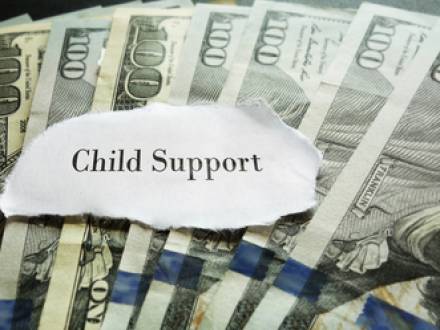Recent Blog Posts
Do We Need a Lawyer to Get an Annulment?
 Under Illinois law, an annulment — officially called a declaration of invalidity of marriage — is different from a divorce. Instead of ending a valid marriage, an annulment declares that a legal marriage never existed. For couples in Rolling Meadows or Hoffman Estates who believe their marriage should never have happened under the law, annulment may be an option. However, the process is not simple, and most people benefit from speaking with an Illinois family lawyer to find out whether their situation qualifies.
Under Illinois law, an annulment — officially called a declaration of invalidity of marriage — is different from a divorce. Instead of ending a valid marriage, an annulment declares that a legal marriage never existed. For couples in Rolling Meadows or Hoffman Estates who believe their marriage should never have happened under the law, annulment may be an option. However, the process is not simple, and most people benefit from speaking with an Illinois family lawyer to find out whether their situation qualifies.
When Is a Marriage Invalid Under Illinois Law?
Only certain circumstances allow a marriage to be declared invalid in Illinois. These include situations where one party was already married to someone else at the time, one or both parties were underage and did not have the ability to give proper consent, or where a party lacked mental capacity due to intoxication, coercion, or another issue. In some cases, marriages may also be invalidated if there was fraud that affected the essentials of the marriage.
Do Wealthy Parents Pay More Child Support in Illinois?
 Child support in Illinois is calculated using an "income shares" model that means that both parents’ incomes are considered when determining their financial responsibility for a child. While this formula applies to all families, the numbers can shift dramatically when high-earning parents are involved. In cases involving wealthy parents, Courts can adjust basic child support guidelines to reflect the lifestyle the child is used to.
Child support in Illinois is calculated using an "income shares" model that means that both parents’ incomes are considered when determining their financial responsibility for a child. While this formula applies to all families, the numbers can shift dramatically when high-earning parents are involved. In cases involving wealthy parents, Courts can adjust basic child support guidelines to reflect the lifestyle the child is used to.
If you or your co-parent earns a high income, you need to understand how Illinois law applies in your situation and what role the Court’s discretion plays in the final support amount. An experienced Barrington, IL child support attorney can help you navigate these issues while protecting your financial and parental rights.
How Does Illinois Calculate Child Support for High-Income Parents?
Illinois uses the "income shares" formula under 750 ILCS 5/505(a). This model estimates the total cost of raising a child in a household based on both parents’ combined net income. That obligation is then divided proportionally between the parents according to their respective shares of the income.
Can I Change My Child’s Last Name After I Get Divorced?
 After a divorce, parents often feel that their child’s last name no longer reflects their identity or relationship. Some want to remove their former spouse’s name altogether. Others wish to hyphenate or restore a maiden name for the child. This is especially true for parents coming out of very difficult marriages who now have full custody of their children.
After a divorce, parents often feel that their child’s last name no longer reflects their identity or relationship. Some want to remove their former spouse’s name altogether. Others wish to hyphenate or restore a maiden name for the child. This is especially true for parents coming out of very difficult marriages who now have full custody of their children.
In Illinois, changing a child’s last name is possible, but the process is more involved than simply requesting a form. When parents do not agree on the change, the matter often goes to Court and the outcome will depend heavily on what the Judge believes is in the child’s best interest. For more information about whether you can change your child’s name after a divorce, contact our Palatine, IL parents’ rights lawyer.
Can My Spouse Move to Another State and File for Divorce?
 When a marriage breaks down, one spouse may move out — sometimes out of the county, sometimes out of Illinois entirely. If your spouse has already left or is threatening to move to another state to file for divorce, you might be worried about where the case will be heard and how much control you will have.
When a marriage breaks down, one spouse may move out — sometimes out of the county, sometimes out of Illinois entirely. If your spouse has already left or is threatening to move to another state to file for divorce, you might be worried about where the case will be heard and how much control you will have.
As of June 2025, Illinois family law still requires that certain conditions be met before someone can file for divorce in the state, and the same is true in other states. Whether or not your spouse can legally move and file elsewhere depends on a few key factors. Our Mt. Prospect, IL divorce attorney is here to help you understand how jurisdiction applies to your case.
Can Someone File for Divorce in a State They Just Moved To?
A person cannot simply move to a new state and file for divorce immediately. Every state, including Illinois, has residency requirements. In Illinois, a person must live in the state for at least 90 days before filing for divorce. Most other states have similar rules, and some are more restrictive. For example, Florida requires six months of residency before someone can initiate a divorce case there.
Can We Get Divorced if We Are in Bankruptcy?
 Filing for divorce and bankruptcy at the same time is not unusual but it does require careful coordination. When financial stress plays a role in marital breakdown, many divorcing couples find themselves facing bankruptcy either shortly before or during the divorce process. As of June 2025, no law in Illinois prohibits a married couple from divorcing simply because they are in an active bankruptcy case. However, the interaction between the two legal processes can affect how long your divorce takes and how your property is divided, making it exceedingly important to work with an experienced Illinois divorce lawyer.
Filing for divorce and bankruptcy at the same time is not unusual but it does require careful coordination. When financial stress plays a role in marital breakdown, many divorcing couples find themselves facing bankruptcy either shortly before or during the divorce process. As of June 2025, no law in Illinois prohibits a married couple from divorcing simply because they are in an active bankruptcy case. However, the interaction between the two legal processes can affect how long your divorce takes and how your property is divided, making it exceedingly important to work with an experienced Illinois divorce lawyer.
Will the Bankruptcy Court Delay the Divorce?
Bankruptcy Courts do not have the authority to stop a divorce case outright. However, the automatic stay that takes effect when someone files for bankruptcy can temporarily delay part of the divorce, especially the division of assets and debts. That is because property division may involve assets that are part of the bankruptcy estate, which falls under the exclusive control of the Bankruptcy Court until the case is resolved or dismissed.
Common Questions About Legal Separation in Illinois
 Filing for divorce can be intimidating, as it may feel too abrupt and final for some couples. Legal separation offers a way to experience life after removing such close ties to your spouse without the finality of divorce. Since this concept is not discussed as often, consider some common questions that people have about legal separation and talk to an experienced Illinois legal separation attorney about your options.
Filing for divorce can be intimidating, as it may feel too abrupt and final for some couples. Legal separation offers a way to experience life after removing such close ties to your spouse without the finality of divorce. Since this concept is not discussed as often, consider some common questions that people have about legal separation and talk to an experienced Illinois legal separation attorney about your options.
How Is a Legal Separation Different From a Divorce in Illinois?
Legal separation and divorce are similar in many ways. Both result in physical and financial separation, but a divorce dissolves the marriage. With a legal separation, you remain legally married, despite separating most other aspects of your lives. Whether you get a divorce or legally separate, you will need to resolve the same issues. For example, if you have children, you must discuss child custody and support. If appropriate, you may need to consider spousal support. Determining whether to get a legal separation or a divorce will depend on your unique situation.
Can I Use Witnesses in an Illinois Divorce?
 Divorce has a broad spectrum of complexity. In some cases, couples can agree on the terms of divorce, including property division, allocation of parental responsibilities, and spousal support. These couples typically move through the divorce process quickly. However, contested divorce is not uncommon. In these cases, witnesses and outside experts can provide helpful insight for the Court and help resolve disputes. If you have questions about the divorce process, an Illinois divorce attorney can offer legal insight and help you better understand how litigation works.
Divorce has a broad spectrum of complexity. In some cases, couples can agree on the terms of divorce, including property division, allocation of parental responsibilities, and spousal support. These couples typically move through the divorce process quickly. However, contested divorce is not uncommon. In these cases, witnesses and outside experts can provide helpful insight for the Court and help resolve disputes. If you have questions about the divorce process, an Illinois divorce attorney can offer legal insight and help you better understand how litigation works.
What Is the Role of Character Witnesses in an Illinois Divorce?
Character witnesses are generally used to testify to your good character. They are often friends, members of your community, or clergy who know you. They can testify about your personality and behavior. For example, a neighbor could discuss arguments they witnessed, or your child’s teacher could attest to each parent’s involvement in the child’s education. Their insight can help the Judge reach a decision about the case, especially regarding matters like child custody. In Illinois, the child’s best interests are the Court’s priority, and witnesses can be an asset in cases involving disputes over allocating parental responsibilities.
Is Mediation Required in an Illinois Divorce?
 Divorce mediation is an effective tool for resolving disputes during divorce proceedings. Sometimes, the court will mandate that a couple attempt mediation before litigation, but you can also choose mediation as a means to reach a divorce settlement. An experienced Illinois divorce attorney can often act as an objective third party, helping you resolve issues and find a comfortable position of compromise. The first step is to understand the mediation process and when it is an obligation rather than a choice.
Divorce mediation is an effective tool for resolving disputes during divorce proceedings. Sometimes, the court will mandate that a couple attempt mediation before litigation, but you can also choose mediation as a means to reach a divorce settlement. An experienced Illinois divorce attorney can often act as an objective third party, helping you resolve issues and find a comfortable position of compromise. The first step is to understand the mediation process and when it is an obligation rather than a choice.
When Is Mediation Court-Ordered in an Illinois Divorce?
In Illinois, Circuit Courts require mandatory mediation for cases involving contested allocation of parental responsibilities. Therefore, if you and your spouse cannot agree on decision-making obligations, such as where your child will go to school and what doctor they will see, or how you will divide parenting time, the Court will require you to go to mediation in an attempt to work out those issues. Exceptions will likely be made in cases where the situation would impede mediation, like domestic violence or a highly uncooperative spouse.
Common Property Division Mistakes Made During an Illinois Divorce
 During the Illinois divorce process, the division of assets is one of the most important elements. For some couples, it is very straightforward, and for others, several factors can complicate the process. A large asset portfolio, substantial debt, commingled funds, and fluctuating property value can present many challenges. To avoid some common mistakes made when dividing property, reach out to an Illinois divorce property division attorney who can address your concerns about what will happen to your assets during divorce.
During the Illinois divorce process, the division of assets is one of the most important elements. For some couples, it is very straightforward, and for others, several factors can complicate the process. A large asset portfolio, substantial debt, commingled funds, and fluctuating property value can present many challenges. To avoid some common mistakes made when dividing property, reach out to an Illinois divorce property division attorney who can address your concerns about what will happen to your assets during divorce.
Miscalculating Asset Value in an Illinois Divorce
Resolving disputes and reaching a compromise outside the courtroom is ideal for most couples. However, when all elements of asset division are left to those with less experience, you risk undervaluing your assets, leading to a grossly inequitable distribution or negative financial implications you had not considered.
Can I Appeal My Divorce Order?
 A finalized divorce decree can have long-term consequences for both spouses, especially when dealing with asset division, parenting time, and support obligations. But what if the outcome of your case feels unfair or was based on a serious error? In Illinois, a divorce order may be appealed under certain conditions, but the process is not automatic and not every decision can be reversed.
A finalized divorce decree can have long-term consequences for both spouses, especially when dealing with asset division, parenting time, and support obligations. But what if the outcome of your case feels unfair or was based on a serious error? In Illinois, a divorce order may be appealed under certain conditions, but the process is not automatic and not every decision can be reversed.
Understanding when and how to file an appeal is essential before taking action. Our experienced Illinois divorce attorney can help determine whether an appeal is appropriate and guide you through the process.
What Are the Grounds for Appealing a Divorce Order?
An appeal is not a second chance to argue your case or revisit facts simply because you are dissatisfied with the outcome. Instead, the appellate Court will review the original trial for legal or procedural errors that may have impacted the decision.
Introducing The Law Office of Nicholas W. Richardson
Nicholas W. Richardson is an experienced divorce lawyer and mediator whose comprehensive legal knowledge, commitment to clients and reputation for results bring lasting solutions to your problems.






